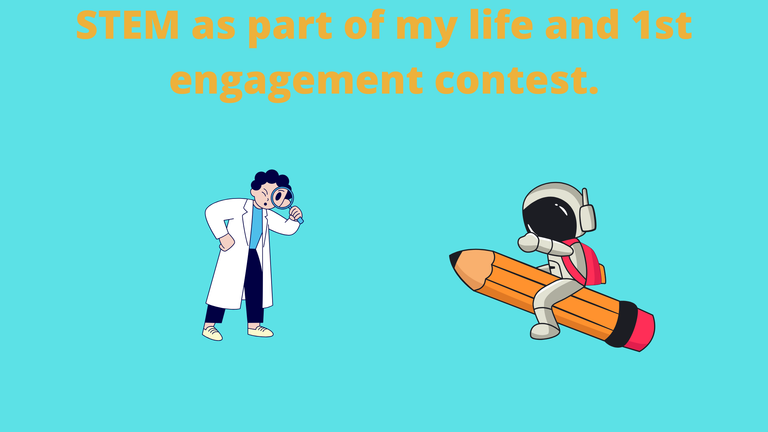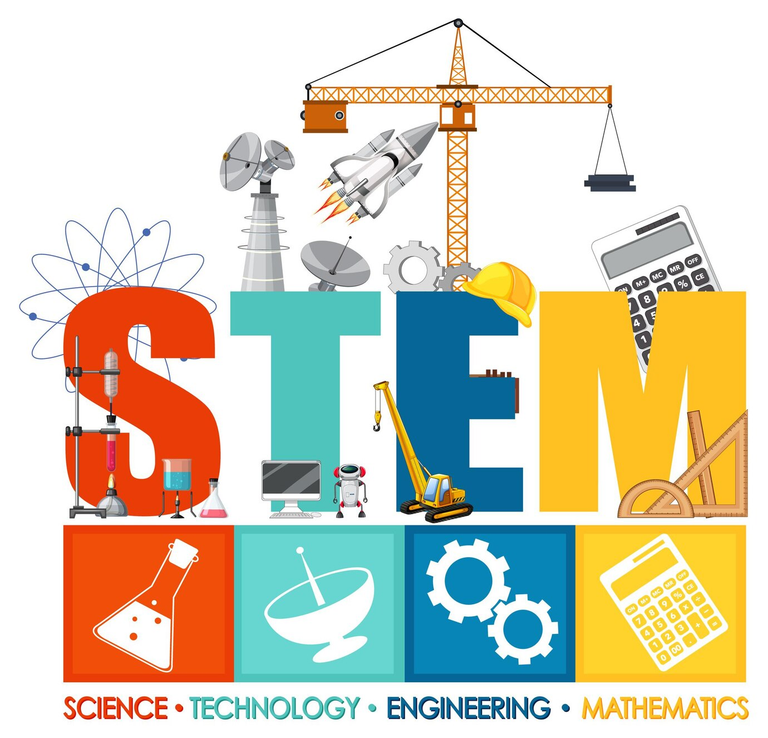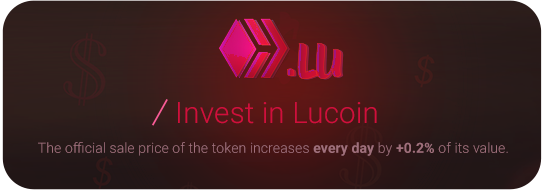
It has been a while since I posted about anything concerning science. Maybe I can cite some of my experiences once in a while, but there is nothing dedicated to the tags #science and #stem. But I feel that in general people are avoiding a bit. People usually create that barrier that science is another language. But we are interacting with daily topics that concern STEM (Science, Technology, Engineering and Math) topics. Even in Hive is difficult to run about it since Hive is a branch from a new technology called cryptocurrencies and there is a bit of computing development behind it, well not a bit, it is all about computation science. From the token itself to the decentralized apps, like front-ends.
You can see that the code of front-ends in our blockchain varies when you see the design or function of each one of them. In the same way that our genetic code varies in different organisms and creates our other characteristics. If we look at the sky during the day and see the blue sky and only a giant star shining but during the night we see many other stars there it the dark night makes us think about these differences. And everything has an explanation, but sometimes we haven't gotten there yet.

I love STEM so much that I talk to my kids every day about a different topic, not because of me. But kids have a giant curiosity about how life, things, and the universe works. Watching a Neil deGrasse Tyson podcast I saw one interesting comparison. Sometimes we don't allow kids to play with eggs worrying about the mess that can be the consequence. But the egg is an interesting bioproduct. It has a hard shell and is almost liquid in a gel form inside, with two different colors: transparent and yellow. But when it is fried, the transparent gets white. In addition, this egg could be a chicken in the future. Many scientific facts and questions can be from an egg. But we prefer to tell the kids to just forget it and stop with it.
The curiosity is all inside us and most of the time it is just blocked by barriers that we grow over time. Usually when these barriers aren't grown, the curiosity remains unblocked and then a new scientist, engineer, mathematician, or computer programmer is born. I see some very nice posts in Hive around the STEM topic, but I admit that I wanted to see more. I am starting a new independent engagement effort in this tag that many times gets a bit abused. I will give 10 HSBI to the winner as an experiment to see how it goes. Let's start with a specific topic:
What is your favorite STEM topic and why? What is your curiosity about it and what do you know about it?
Rules:
- Have fun writing about this experience with STEM topics. It doesn't exit the thing " I am not smart to write about it".
- Post the link in the comment section.
- Don't commit plagiarism and don't use AI for your text.
- Use #stem and #science tags, let's populate them with some love!
- No word minimum, but it is recommended to write at least 300 words.
Deadline: Let's give two weeks to see what happens. Monday, December 16th at 11:59 PM UTC.



Já faz um tempo que não posto nada sobre ciência. Talvez eu possa citar algumas das minhas experiências de vez em quando, mas não há nada dedicado às tags #science e #stem. Mas sinto que, em geral, as pessoas estão evitando um pouco. As pessoas geralmente criam essa barreira de que ciência é outra linguagem. Mas estamos interagindo com tópicos diários que dizem respeito a tópicos STEM (Ciência, Tecnologia, Engenharia e Matemática). Mesmo no Hive é difícil falar sobre isso, já que o Hive é um ramo de uma nova tecnologia chamada criptomoedas e há um pouco de desenvolvimento de computação por trás disso, bem, nem um pouco, é tudo sobre ciência da computação. Do token em si aos aplicativos descentralizados, como front-ends.
Você pode ver que o código dos front-ends em nosso blockchain varia quando você vê o design ou a função de cada um deles. Da mesma forma que nosso código genético varia em diferentes organismos e cria nossas outras características. Se olharmos para o céu durante o dia e virmos o céu azul e apenas uma estrela gigante brilhando, mas durante a noite vemos muitas outras estrelas lá, a noite escura nos faz pensar sobre essas diferenças. E tudo tem uma explicação, mas às vezes ainda não chegamos lá.

Eu amo tanto STEM que falo com meus filhos todos os dias sobre um tópico diferente, não por minha causa. Mas as crianças têm uma curiosidade gigante sobre como a vida, as coisas e o universo funcionam. Assistindo a um podcast de Neil deGrasse Tyson, vi uma comparação interessante. Às vezes, não permitimos que as crianças brinquem com ovos, preocupados com a bagunça que pode ser a consequência. Mas o ovo é um bioproduto interessante. Ele tem uma casca dura e é quase líquido em forma de gel por dentro, com duas cores diferentes: transparente e amarelo. Mas quando é frito, o transparente fica branco. Além disso, esse ovo pode ser uma galinha no futuro. Muitos fatos e perguntas científicas podem vir de um ovo. Mas preferimos dizer às crianças para simplesmente esquecerem e pararem com isso.
A curiosidade está toda dentro de nós e, na maioria das vezes, é bloqueada por barreiras que criamos ao longo do tempo. Geralmente, quando essas barreiras não crescem, a curiosidade permanece desbloqueada e então nasce um novo cientista, engenheiro, matemático ou programador de computador. Vejo algumas postagens muito legais no Hive sobre o tópico STEM, mas admito que queria ver mais. Estou iniciando um novo esforço de engajamento independente nesta tag que muitas vezes é um pouco abusada. Darei 10 HSBI ao vencedor como um experimento para ver como vai. Vamos começar com um tópico específico:
Qual é seu tópico STEM favorito e por quê? Qual é sua curiosidade sobre ele e o que você sabe sobre ele?
Regras:
- Divirta-se escrevendo sobre essa experiência com tópicos STEM. Não sai da questão "Não sou inteligente para escrever sobre isso".
- Poste o link na seção de comentários.
- Não cometa plágio e não use IA para seu texto.
- Use as tags #stem e #science, vamos preenchê-las com um pouco de amor!
- Não há mínimo de palavras, mas é recomendado escrever pelo menos 300 palavras.
Prazo: Vamos dar duas semanas para ver o que acontece. Segunda-feira, 16 de dezembro às 23h59 UTC.

Posted using STEMGeeks

 )
)



